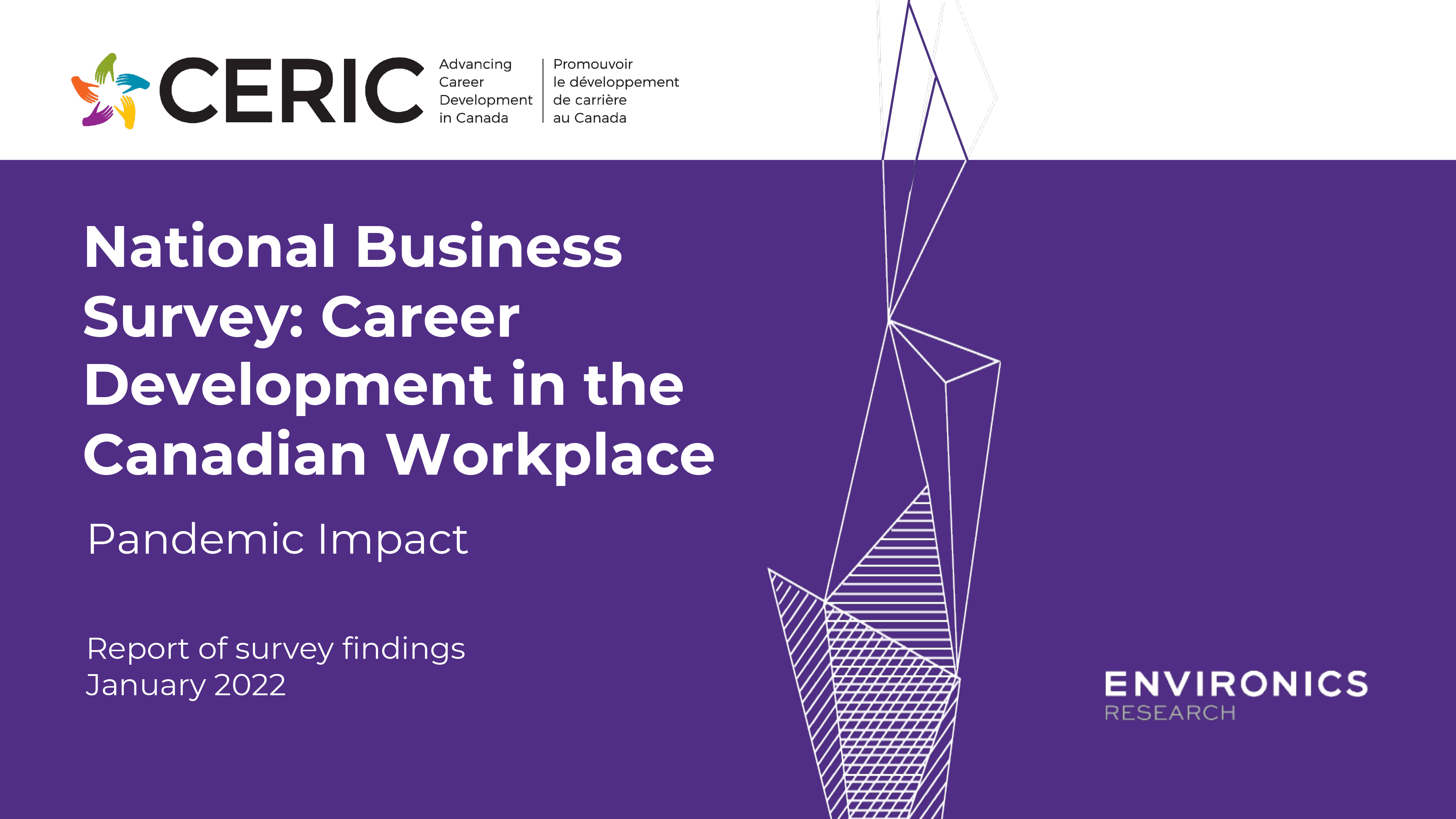
Maintaining a career mindset during times of change
January 21, 2022
Lynne Bezanson honoured with Wileman Award for her remarkable achievements
January 31, 2022The majority of Canadian executives (81%) are having difficulty finding people with the right skill set to fill positions and 78% agree there is a skills gap in their respective industry, but few have drawn on the expertise of career development professionals to address recruitment and retention challenges, according to a national survey recently conducted by Environics for CERIC.*
For the Career Development in the Canadian Workplace: National Business Survey, CERIC surveyed 500 Canadian executives in more than 11 industries including service, retail, hospitality, construction and manufacturing. The survey reveals keen insights into Canadian organizations’ current views on skills and talent gaps in the labour market; hiring underrepresented groups as part of equity, diversity and inclusion strategies; and the importance of investing in career development. The survey also provides comparability to CERIC’s 2013 survey to track differences within the past eight years.
Top challenges for Canadian businesses
In this fluid pandemic landscape and underlying uncertainty, the challenge of finding young & skilled talent has increased in the past eight years. The top five challenges faced by employers are:
- A shortage of skilled workers (75% vs 68% in 2013)
- Finding young workers (66% vs 51% in 2013)
- Supply chain issues (70%)
- General state of the economy (69% vs 77% in 2013)
- Regulation and red tape (52% vs 63% in 2013)
While employers in Ontario were the least likely to experience a shortage of skilled workers in 2013, they are now the most likely, followed by executives in Quebec and the Prairies.
Recruiting and retaining talent
Eighty-one per cent of Canadian executives are having difficulty finding people with the right skill set to fill positions in their companies – up from 70% in 2013. Additional difficulties include:
- Finding reliable candidates with the right work ethic (29%)
- Competitive job market in their respective industry (23%)
While the importance of resumes has not deviated significantly since 2013, executives are finding a potential employee’s online footprint to be increasingly important (63% vs 52% in 2013).
Despite the growing importance of equity, diversity and inclusion, there has been a modest increase in the proportion of executives putting effort into customizing their recruitment approaches to attract and reach members of underrepresented groups (51% vs 46% in 2013).
Take a hard look at soft skills
Executives who have experienced more difficulty in employee retention (72%) more often identify a skills gap in their industry (42%) and are finding it increasingly more difficult to recruit people with the soft skills they deem important (40%). While positive attitude (29%) and good communication skills (22%) continue to be seen as the two most important soft skills for prospective employers, the importance of reliability and dependability has increased by more than 100% since 2013. The survey revealed executives are most likely to hire someone with soft skills who is a good fit and provide training (78%).
Investing in career development to close the skills gap
While 73% agree employers have a responsibility to provide career management programs for employees, only 27% provide these programs and 45% were unaware of career development professionals before this survey.
“Canadian executives have the unique opportunity to help Canadians take charge of their career by investing in development strategies that help employees identify personal strengths and clarify career goals that can positively contribute to job satisfaction,” says André Raymond, CRHA, Laval University and Chair of the Board of Directors.
The findings from this survey will be released during an industry expert panel discussion at CERIC’s Cannexus conference on Jan. 24 at 1:15 p.m. ET.
*From Nov. 18 – Dec. 17, 2021, Environics conducted a national telephone survey with senior-level employees from 501 randomly selected Canadian businesses across the country. The margin of error is ± 4.4 percentage points, at the standard 95% confidence level.

